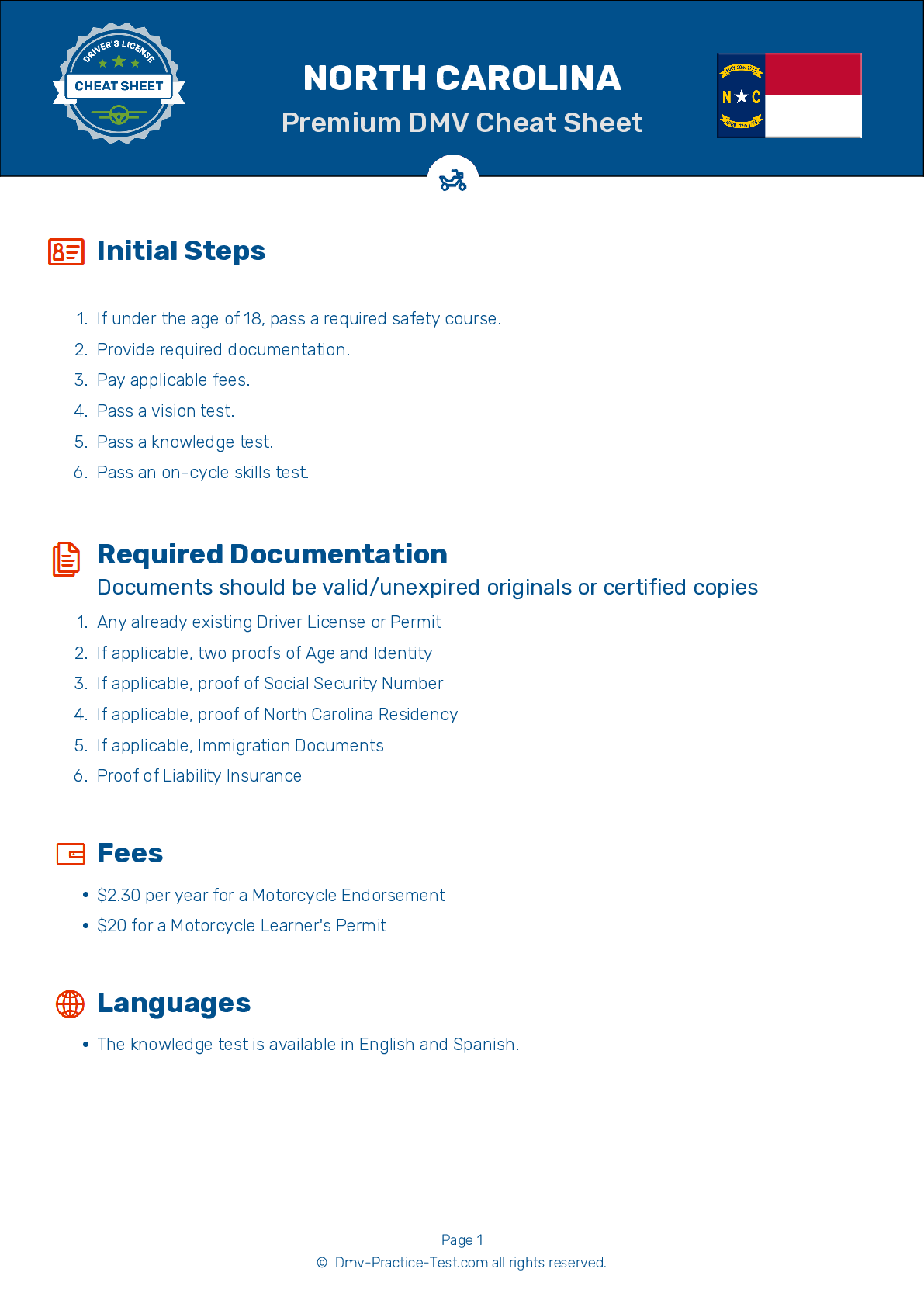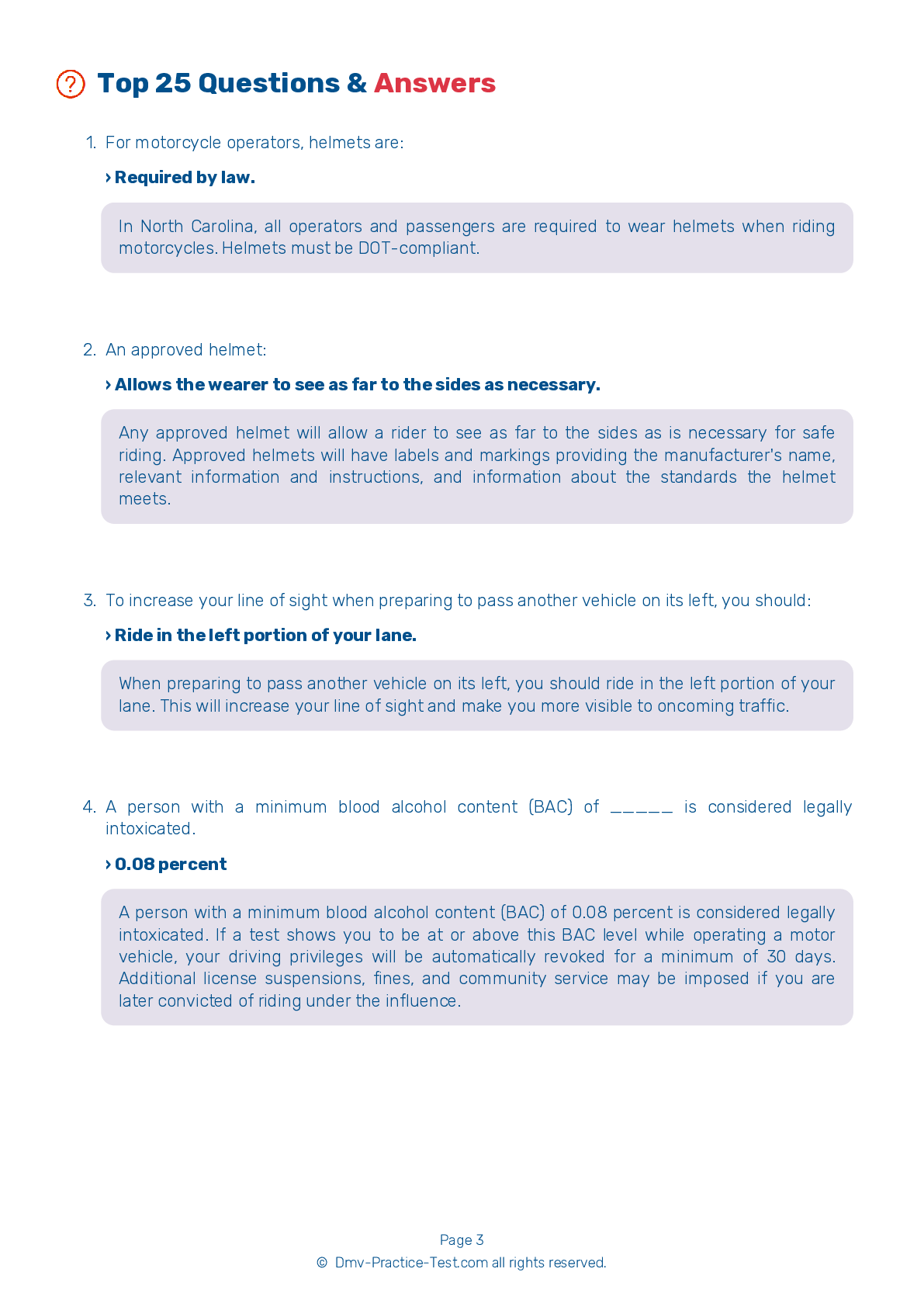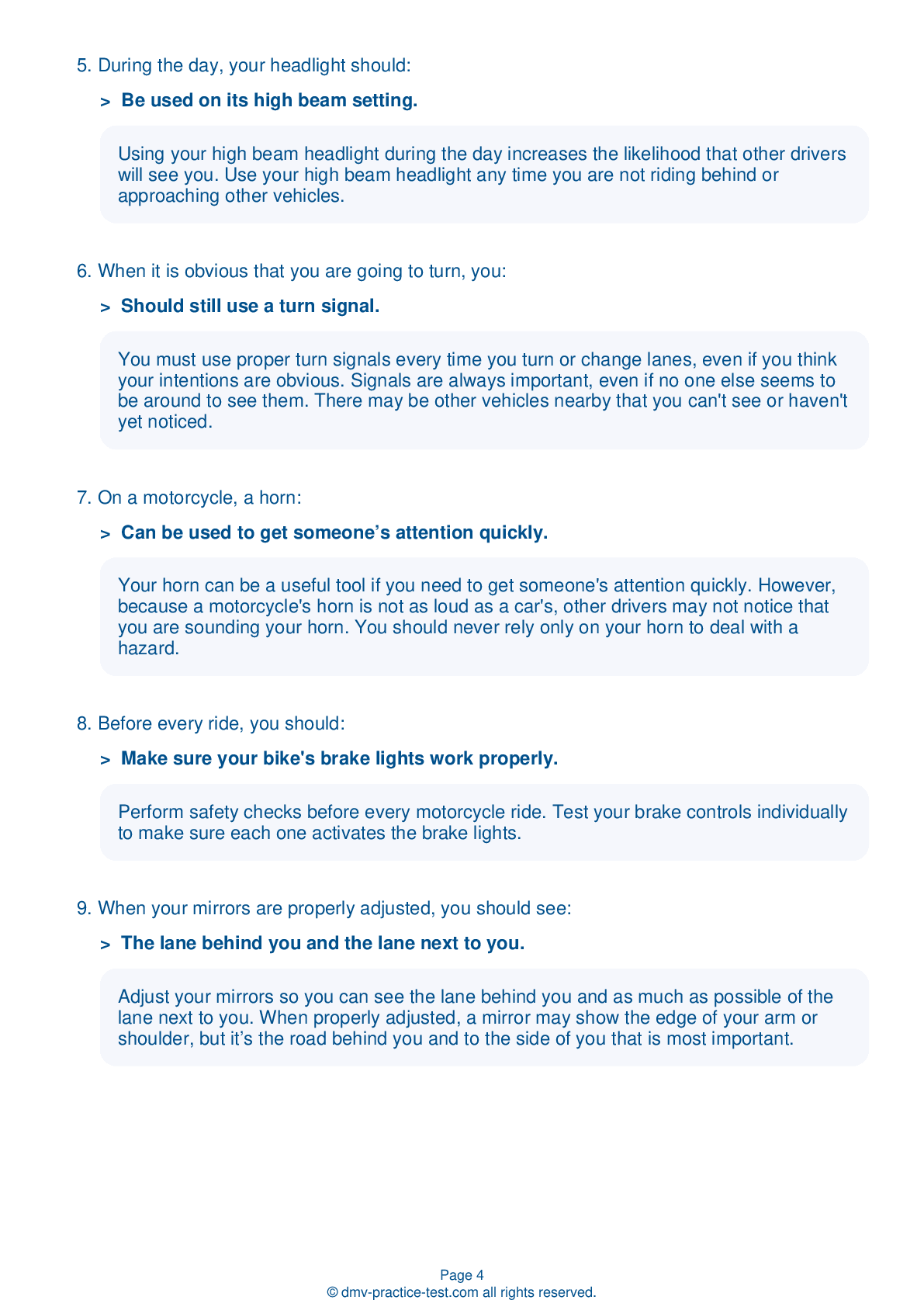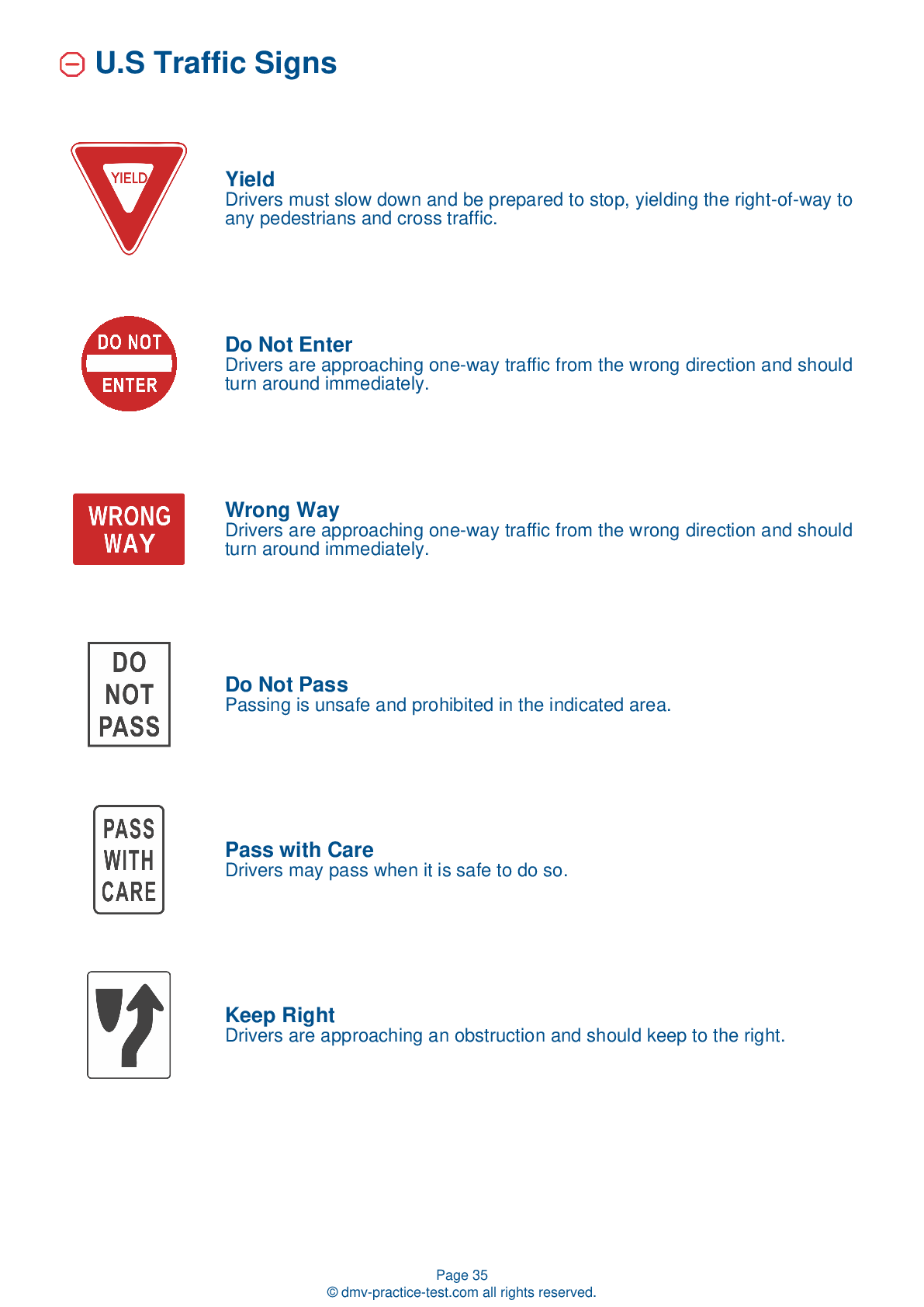DMV Permit Test #2
Motorcycle Test | License NC 2026 | FREE Online Practice! #2
Take this FREE motorcycle test (license in NC 2026) to check your knowledge of the road rules. To improve your results, download a motorcycle handbook online, study theory, and practice for free on our website. Still worried about how to get a motorcycle license in North Carolina in 2026? Check our website for more sample tests, train as much as possible, and boost your grades!
25
20
16
1 . A DOT-approved helmet:
Makes it more difficult for the wearer to control their motorcycle.
Wearing a helmet while riding greatly improves your chances of avoiding serious injury to your head or neck in the case of a crash. A DOT-approved helmet will not restrict your vision to the sides.
2 . Your lane position should do all of the following, except:
Increase your ability to be seen by others.
A well-chosen lane position should increase your ability to see and be seen and keep you out of other drivers' blind spots. It should help you avoid surface hazards, protect your lane from other drivers, communicate your intentions to others, help you avoid wind blasts from other vehicles, and offer you an escape route from any hazards that may arise.
3 . This sign means:
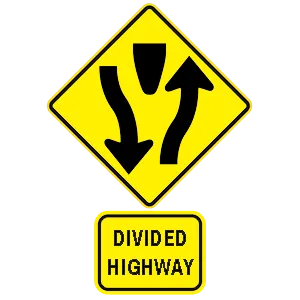
Keep left.
Warning signs are usually diamond-shaped with black markings on a yellow background. They alert drivers to upcoming hazards. This warning sign indicates that drivers are about to encounter a divided highway.
4 . Downward-facing triangular signs:
Indicate railroad crossings.
Downward-facing triangular signs usually indicate that riders should yield. Once the crossroad is clear of traffic, bicycles, or pedestrians and it is safe to do so, riders may proceed through the intersection.
5 . This sign means:
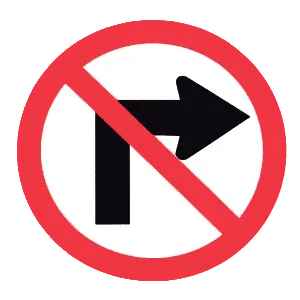
No turning.
This sign indicates that right turns are prohibited. Do not make a right turn at an intersection where this sign is posted.
Need Motorcycle Insurance? No problem!
Compare the best rates in North Carolina and find a personalized policy that meets your needs.
1. Are You Currently insured ?
2. Married ?
3. Do you own your Home?
4. Have you or a Family Member Honorably Served in U.S. Military ?
5. Your Name
6. Age
7. Zip code
Ranked by best match
2026 North Carolina | Frequently Asked Questions
In North Carolina, to acquire a motorcycle license, you must first have a regular driver's license. Then, you need to pass a motorcycle knowledge test, a sign test, and a vision test at your local DMV. Once these are passed, you'll receive a motorcycle learner's permit. After practicing with the permit, you can take the skills test to get your full motorcycle license.
In North Carolina, the minimum age for obtaining a motorcycle learner's permit is 16. However, if you're under 18, you must have a provisional, regular, or commercial driver license and pass the motorcycle knowledge test. A motorcycle safety course is recommended. At 18, you can apply directly for a motorcycle endorsement or license without needing a permit first.
Yes, in North Carolina, you need a dedicated motorcycle endorsement to legally ride a motorcycle. This can be added to your current driver's license. To obtain it, you must pass a written test, a sign test, and a motorcycle road test. If you don't have a regular driver's license, you can obtain a standalone motorcycle license.
To apply for a motorcycle driver's license in North Carolina, you'll need several documents. These include proof of age and identity (like a birth certificate or passport), social security card, proof of residency (like a utility bill or lease agreement), and if applicable, legal presence documents. If you're under 18, you'll also need a Driving Eligibility Certificate or high school diploma.
Yes, you will need to take a written exam for a motorcycle license in North Carolina. This test evaluates your knowledge of motorcycle operation, safety procedures, and road rules. However, if you successfully complete a state-approved motorcycle safety course, you may be exempt from taking the written test at the DMV.
The motorcycle written test in North Carolina covers a variety of subjects related to motorcycle safety and operation. These include understanding traffic signs and signals, rules of the road, safe riding practices, how to handle hazardous conditions, and motorcycle-specific laws. The test is based on the information found in the North Carolina Motorcycle Operator's Manual.
In North Carolina, completing a state-approved motorcycle safety education course can waive the written and skills tests required for a motorcycle endorsement. The course includes a written exam and skills test. So, if you pass the course, you've essentially passed these tests, and can present your completion card at the DMV to receive your endorsement.
Enrolling in a motorcycle training course in North Carolina involves finding a Motorcycle Safety Foundation (MSF) approved course near you. You can register online or by phone, depending on the provider. The course typically includes classroom instruction and hands-on training. Upon completion, you may be exempted from the skills test at the DMV for your motorcycle license.
No, it is not compulsory to own a motorcycle for the license test in North Carolina. You can use any motorcycle as long as it is properly registered, insured, and safe for use. However, the motorcycle must match the class of license you are attempting to obtain. For instance, a Class M license requires a motorcycle of over 50cc.
Yes, you can use a friend's motorcycle for the driver's license evaluation in North Carolina. However, make sure the motorcycle is properly registered, insured, and safe to operate. Also, you must have a way to legally transport the motorcycle to the testing location, as you cannot ride it there without a valid motorcycle endorsement or permit.
Yes, in North Carolina, the motorcycle driving exam tests several specific handling skills. These include your ability to start and stop, turn and swerve, and navigate through traffic. You'll also be tested on your understanding of road signs and signals, your ability to make safe decisions under pressure, and your overall control of the motorcycle.
Yes, in North Carolina, new motorcycle drivers who hold a learner's permit face several restrictions: they cannot ride at night, carry passengers, or ride outside of North Carolina. These limitations are lifted once the driver passes the skills test and obtains a full motorcycle endorsement. It's always wise to know and follow all local traffic laws.
Yes, your North Carolina motorcycle license or endorsement allows you to legally operate a motorcycle in other states. This is due to the Full Faith and Credit Clause of the U.S. Constitution, which requires each state to honor the public acts and judicial decisions of other states. However, you must adhere to the specific motorcycle laws of each state you visit.
Yes, in North Carolina, it is mandatory for all motorcycle riders and passengers to wear a helmet. This law applies regardless of age or experience level. The helmet must meet the Federal Motor Vehicle Safety Standard (FMVSS) 218, meaning it should be DOT approved. Non-compliance can result in fines and penalties.
Yes, in North Carolina, there are two types of motorcycle licenses: a full motorcycle endorsement (M) and a motorcycle learner's permit. The full endorsement allows unrestricted riding, while the learner's permit has limitations such as no night riding and no passengers. Both require passing written and skills tests, with the endorsement needing a regular driver's license as a prerequisite.
Yes, in North Carolina, you can add supplementary endorsements to your motorcycle license. This can include added qualifications like a commercial driver's license (CDL) or a school bus endorsement. Each endorsement requires additional testing and fees, so it's important to check with the North Carolina DMV for specific requirements.
Yes, in North Carolina, the motorcycle license test can be taken in languages other than English. The North Carolina DMV offers the test in several languages. However, it's advisable to contact your local DMV office beforehand to confirm the availability of the test in your preferred language.
An effective strategy to prepare for the motorcycle license test in North Carolina is to thoroughly study the state's motorcycle handbook. This guide covers all the information you'll need for the test. Additionally, taking practice tests available online can be very helpful. They simulate the actual test and help familiarize you with its format.
Yes, in North Carolina, the motorcycle written exam can be taken in languages other than English. The North Carolina DMV offers the test in multiple languages. However, it's best to contact your local DMV office in advance to confirm the availability of the test in your preferred language.
Yes, retaking is allowed in North Carolina if you don't pass the motorcycle written test on your first attempt. You must wait at least one day before retaking the test. If you fail three times, you'll need to wait a year from the date of the last failed attempt before you can try again.
